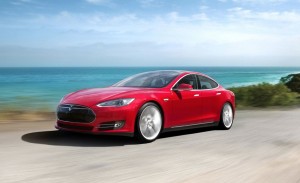
The head of Tesla's operations in China, Veronica Wu, resigned after less than a year at the company.
Less than a year after joining the company and nine months after accepting the job, Veronica Wu resigned as the head of Tesla Motors’ China operation. She gave no reason for her departure.
Wu joined Tesla from the China unit of Apple and was expected to guide the fledgling EV maker through the myriad of problems it could face in the country.
The California-based EV maker just started expanding its presence in China after years of legal wrangling over the company’s name with a squatter. Tesla founder Elon Musk traveled to Beijing to help deliver the first vehicles to buyers there in April.
At the time, he hoped the maker could sell 5,000 of the vehicles in China this year, though he quickly cautioned the number is “just a guess.”
However, China is a key player in the company’s growth as the government is encouraging the use of EVs as a way to improve the country’s air pollution problems.
Tesla has jumped in with both feet by investing millions of dollars to build charging stations around the country there.
In August, the automaker announced it was teaming with mobile phone network operator China Unicom to build charging posts at 400 China Unicom stores in 120 cities, and will also set up super-charging outlets in 20 Chinese cities.
(Nearly half of all EVs sold in California. For more, Click Here.)
Tesla’s installed 23 Supercharging locations in 10 cities and several destination-charging stations at prominent hotels, malls and commercial buildings.
Not only is the country looking for cleaner transportation, buyers are clamoring for high-priced vehicles and Tesla certainly fits the bill. The company’s Shenzhen location in China is already one of the maker’s highest grossing stores.
(Click Here for details about the demise of a possible link-up between Tesla and BMW.)
In fact, China’s demand for high-line vehicles is booming and it is soon expected to become the world’s largest luxury car market. The Model S is currently priced at around $115,000 in China, compared to a base of $70,000 in the U.S. Import vehicles face hefty tariffs, so Tesla is apparently giving serious thought to following the lead of key luxury rivals by producing locally, sidestepping such duties.
(To see more about Audi’s all-new Q7 bowing at the Detroit Auto Show, Click Here.)
“At some point in the next three or four years we’ll be establishing local manufacturing in China,” Musk told reporters in Beijing, calling China “very important to the future of Tesla.”

I’m sure she left to “explore other opportunities” or for personal reasons. Those are the typical phrases used…